---------------------------------------------------------
All I knew about ducklings before we got them was they are super messy. That was enough to scare me away for years. Their cute little faces won me over eventually and I thought “how messy could they be?”. The answer to that question is very. Very, very messy.
Even though I like things to be clean in my house, I still think the ducks are worth it. They are an awesome addition to our little farm! Brooding ducklings requires a special kind of patience and love. It will absolutely amaze you how quickly they will mess up their brooder. But they are just so unbelievably sweet and fun to watch it *almost* makes up for it.
If you have a spare bathtub that is the way to go so a lot of the water can easily drain out. You will still be cleaning up your fair share of gunk to avoid having it clog up your plumbing. A brooder can also be made out of a plastic storage bin (click here to see how I made it). You should plan to have about 1 square foot of brooder space per duckling for ducklings under 3 weeks old.
Brooder set up
On the bottom of the box, I put down a rubber shelf liner. This gives the ducklings a nonslick surface to walk on. It will also elevate the straw bedding a little so it’s not sitting in a pile of goo. I have a small baking sheet that I put in the brooder box. I put the feed and water dishes in the baking sheet to help catch most of the gunk & water they splash around. Then I put a handful or two of straw in the rest of the box for bedding.
For a feed dish, you want to use something fairly shallow they can access easily. I use a terracotta pot saucer. For their water, I use a Mason jar water base for the first week. You don’t want to put a big dish of water in there with newborn ducklings. Newborn ducklings are awkward and sometimes find themselves stuck on their back. You don’t want that to happen near the water!
They grow so fast that by the end of that first week, they will be having a hard time fitting their heads and bills in the dish. Ducks need to be able to dunk their whole head in the water. This is how they keep their nostrils clean & moist, and their eyes clear. After the first week, I switch to a glass 2-quart baking dish. It’s easy to clean and heavy enough the ducks can’t overturn it.
What do ducklings eat?
If you can find waterfowl starter feed that is the best option. But ducklings can also eat the same starter feed you would give chicks. If you use chick feed, you want to find a non-medicated starter chick feed. Ducklings eat a lot more than chicks and could overdose on medication. Chick feed is medicated to prevent coccidiosis, which isn’t an issue for ducks so the medication is completely unnecessary anyway.
To support ducklings’ fast growth, you want to find a starter feed that is high in protein for the first two weeks (20% if possible). At around 3 weeks, the duckling’s growth will really kick into high gear. They will be going through feed like crazy. Because of this, you want to switch to a slightly lower protein grower feed (16-18%) so they don’t go into protein overload. If you can’t find a lower protein chick grower feed, you can “dilute” the feed by adding a low-protein grain like oats to the feed. Mix in raw, uncooked oats to replace about 25% of the feed. Too much protein can lead to a wing deformity called angel wing. This causes their wing joint to stick out instead of laying flat against the body. click here to read more about angel wing
Brewer’s Yeast
Ducklings require 2-3 times the amount of niacin that chicks need. Commercial chick starter will not provide the niacin that ducklings need. Niacin deficiency can lead to bowed legs and joint issues so you should supplement your duckling’s diet. Adding brewer’s yeast to their feed is an easy way to help them get extra niacin. I like to mix the brewer’s yeast in as I change the feed. For every cup of feed I put in the dish, I mix in 1.5 tablespoons of brewer’s yeast. click here to read more about ducklings & niacin
For the first two weeks, I would avoid giving them additional treats. After that, ducks like the same sorts of treats that chickens do. Some duck favorites include mealworms, bugs, fresh greens, herbs (try floating some herbs in the water, they will love it!), scrambled eggs, and most fruits. Once you start giving them treats beyond their feed, you need to provide the ducklings with grit (sand or commercial chick grit) to help them digest the food.
Heat
If you have brooded chicks before, you will notice that ducklings don’t need heat for as long as chicks do. This is because ducklings grow so much faster. You will want to start out with a heat lamp warming the area to 90 degrees. Use a heat bulb with a red filter to ease stress. From there you go down about 1 degree a day. You don’t need to go crazy about getting it precise. Aim to be around 83 degrees at the end of the first week. By the end of the second week around 76 degrees.
The ducklings will let you know if they are uncomfortable. If you check on them and see them sitting with their mouths open panting, it’s too hot- back the heat off a bit more. If they are peeping loudly and huddled together bring the heat back some more.
By the end of the third week, you are aiming for a temperature of 69 degrees. If you are brooding the ducks in your house, sometime during that second week you are going to be hitting the regular air temperature inside and can turn the heat lamp off. I brood my ducks in my sunroom which during the day is fine. But it can get a little chilly at night, so I turn the heat lamp off during the day. I turn it on at night if they need it. After the third week, it’s off pretty much all the time unless we get a super cold snap.
Just how messy are they? Keeping them clean
What makes ducklings so messy? Well, there is the obvious, they poop a lot. Their poop is pretty runny because of all the water they drink. But in addition, and I think the bigger offender, is the way they eat and drink.
Ducks like to mix their food & water for digestion, so they will take a bill full of feed, eat it, then chase it with water. But often there is still food in their bill, which gets into the water. Then when they go back for more feed, there is still water in their bill which gets into the feed. This turns the feed into a gunky mess. And of course, they are dropping both feed & water in between the two dishes.
When they are done eating, they like to dip their whole heads in the water about a dozen or so times to get clean. They also like to get in the water to splash around a bit. When they come up they are shaking their heads and bodies splattering water on all the walls. After they have been eating and food starts dissolving in the water it turns brown and mucky. They shake that water onto all the walls of the brooder making every surface gross.
My schedule for keeping the brooder box clean (ish)
This is my schedule for keeping the brooder box MODERATELY clean. The ducklings get cleaned the first time around 9 AM, I start by changing out the straw bedding. I then wipe out all the gunk from the baking sheet that is under their water. Then clean & refill their water and food dishes.
Mid-day, I do the same, usually around 2 PM. Then before I go to bed around 11:30 PM, I do a bigger cleaning. I take everything out of the box, including the shelf liner. By this point it is caked with poo and mushed-up food. I rinse the shelf liner in the sink, clean the baking sheet, and the water & feed bowls. Then I take a vinegar spray and wipe down all the walls & floor of the brooder box. click here to see how I make this natural cleaner. I put everything back and add clean straw.
Swimming Time
Ducklings can technically swim when they are about a week old but they lack the oil in their feathers that help adult ducks be so buoyant. In the wild, a mother duck rubs some of her oil on her babies to help them swim.
Swim time should always be short & supervised during the first month of life. A tub or sink filled with a little water for them to splash around in will be fine and they will have a blast in there. 10-15 minutes should be enough at first before they start to get tired.
A tired duckling with no waterproofing can easily drown so always be there to supervise. Make sure you dry them off before you return them to the brooder so they don’t get too chilled. After about 5 weeks, they should be preening to distribute the oil in their feathers and good to swim on their own for longer times.
Going outside
By the third week, you can start introducing your ducklings to the great outdoors on warm, sunny days (at least 65 degrees). Make sure they are in a secure run or playpen and monitor their excursions to keep them safe from predators. Keep the first few trips outside short, gradually lengthening their time outside to get them used to outdoor temperatures.
Somewhere around their 6th-8th week they should have lost their baby fluff and be feathered out. They can move outside permanently anytime after week 4 as long as nighttime temperatures are over 50 degrees. And by this point, you will be more than ready for these messy house guests to move to their new home!
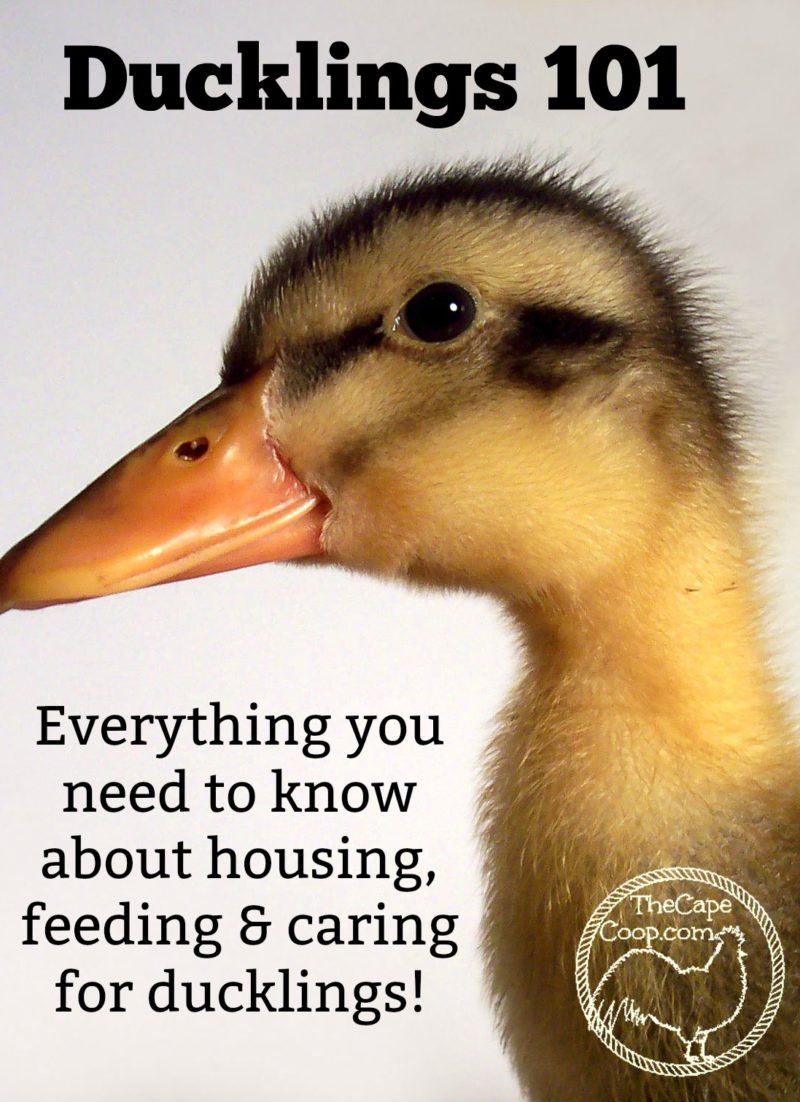
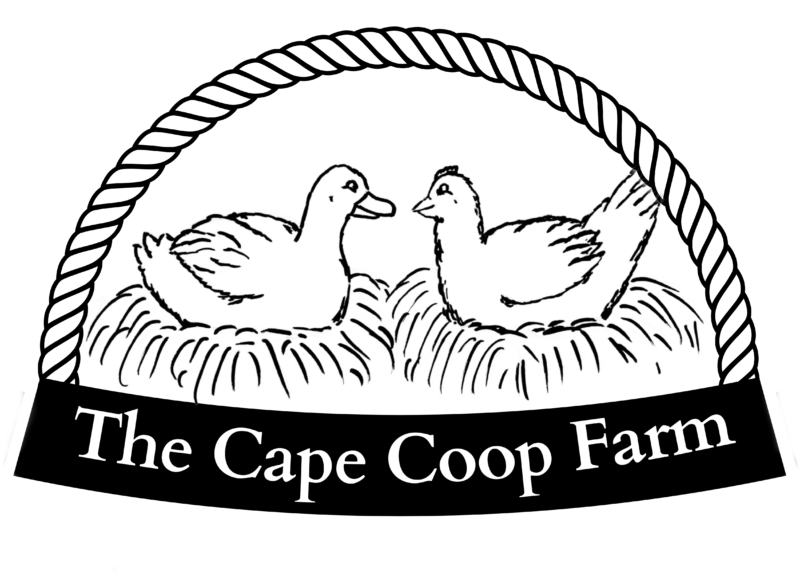
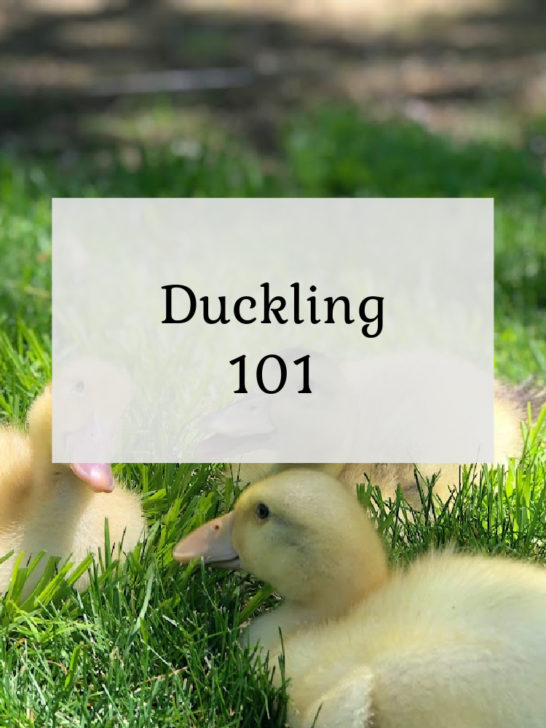

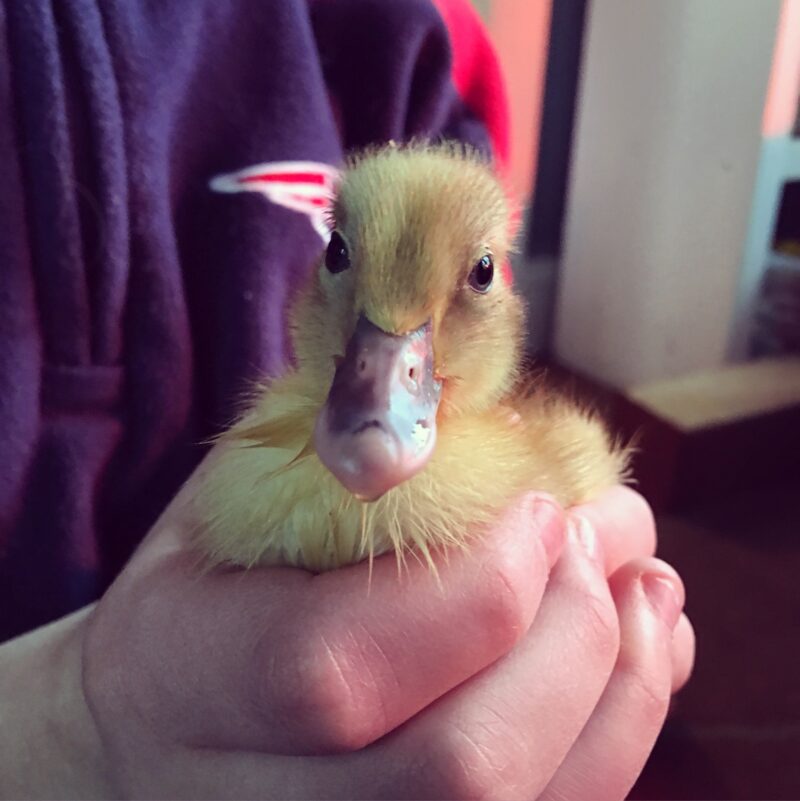
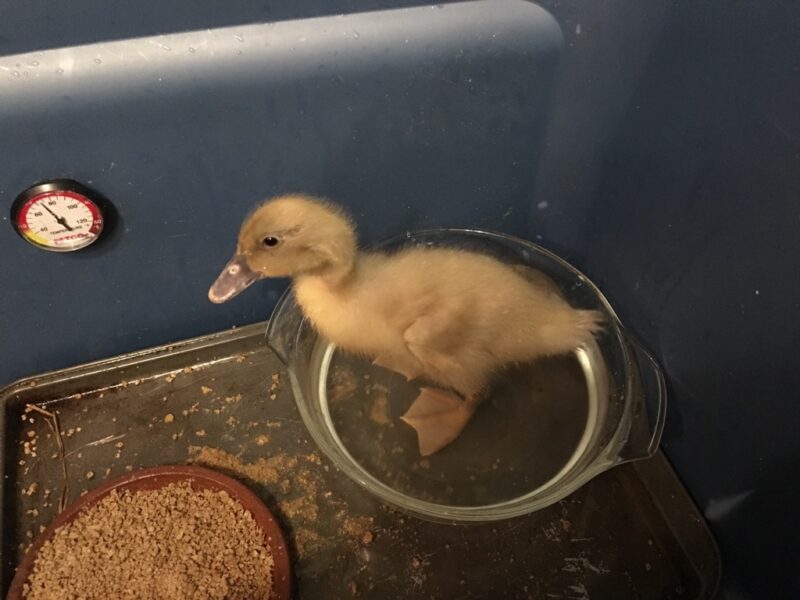

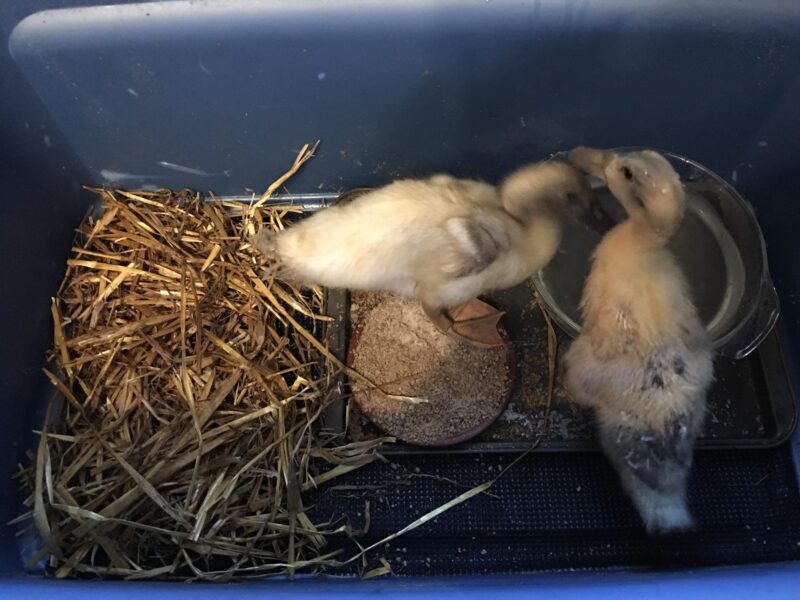
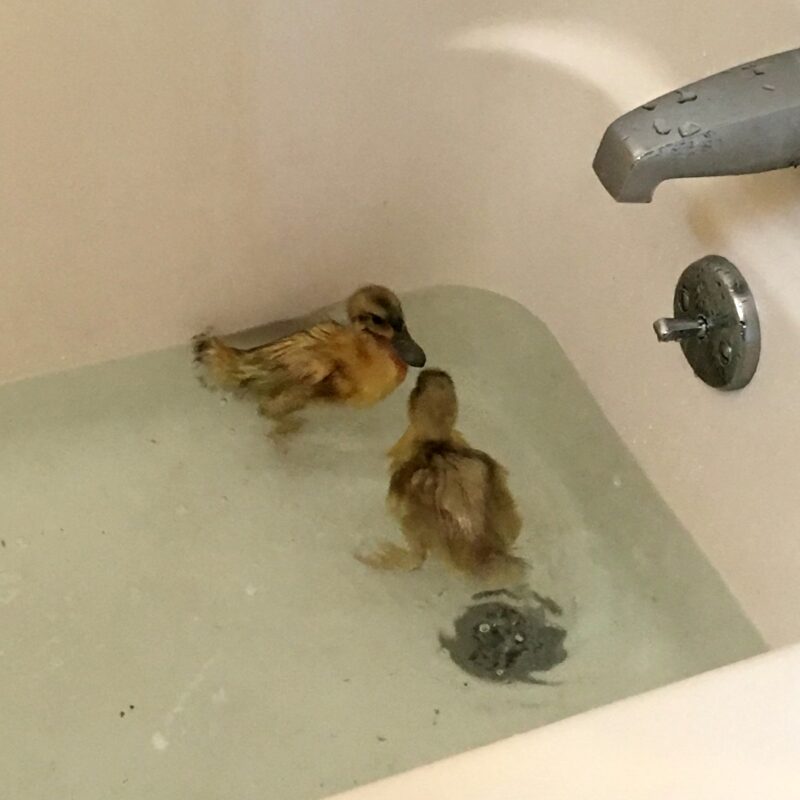
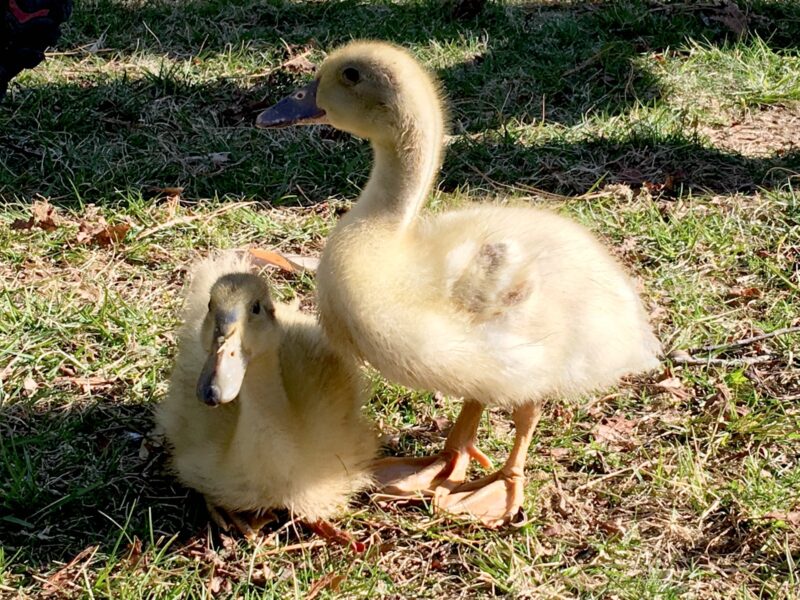
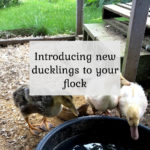

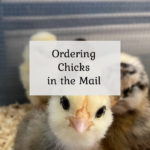
Kimberly
Wednesday 13th of March 2024
I've had my mini-farm for about 2 years now and each time I go online to search for facts, suggestions, etc. I find myself looking for your website! I am truly thankful for the information you share. It gives me ideas, which my husband hates hehee, and also straight-to-the-point information. Thank you for your insights!
Liz
Wednesday 13th of March 2024
Awww thank you so much! I'm so glad we can share our farming journey together :)
Mugsy
Sunday 25th of June 2023
Lordy, I am in a panic. One of my Pekin duck brooders had babies. Or two may have had babies. They abandoned them. I have put them in a box but 2 are bigger and were trampling all over the little ones. The little ones look like they are just a few hours old. I put them in separate boxes and I tried giving them water but they won't drink or eat. I can't get them a momma so I gave them Swiffer pads. I just need any suggestions anybody can give on what to do. I'm so scared the newborns aren't going to make it. They are laying together but they just keep sleeping.
Liz
Wednesday 28th of June 2023
Do you have a heat lamp? I know its summer time but at least for the first week or so they will need a little extra heat. Beyond the heat, just make sure they are getting food & water. If possible pick up some actual duckling food - you can get it on amazon if your feed store doesn't carry it. If you can't find duckling food, non medicated chick starter feed mixed with some brewers yeast will also work. You can do this! Once the newborns are a week or so old you might be able to mix with them the 2 bigger ones, but I think your insticts are right to keep them separate for now. Ducklings have such big flappy feet, it takes them a little bit of time to learn how to control them without trampling everything around them
Zak
Thursday 23rd of March 2023
I am new to raising ducks and had a noob question if my ducks are all huddled together, but the heat is at 90° they don’t seem cold. Is it normal? Do they huddle together when they are sleeping.
Liz
Thursday 23rd of March 2023
They definitely love to snuggle! If they were cold they would also be peeping really loudly at you, sounds like they are perfectly happy!
Angelique D Judy
Friday 11th of March 2022
I have ducklings that are about a week old and I picked up 2 of a different breed. The older ducklings are chasing, nipping and harassing the newcomers. What can i do
Liz
Tuesday 15th of March 2022
You might need to separate the little ones until they get a little bigger and can stand up for themselves. A week makes a huge difference in fast growing ducklings. You might want to keep them separate for a week, then try reintroducing them
Sue Miller
Tuesday 13th of July 2021
Thanks so much, Liz. You are providing such a valuable service to us ducky newbies out here. I really didn’t know about the oil gland ducks have and how the mother preens the babies with their own oil! Mother nature is just so fascinating.
Liz
Tuesday 13th of July 2021
No problem! I agree, I am constantly fascinated by nature!